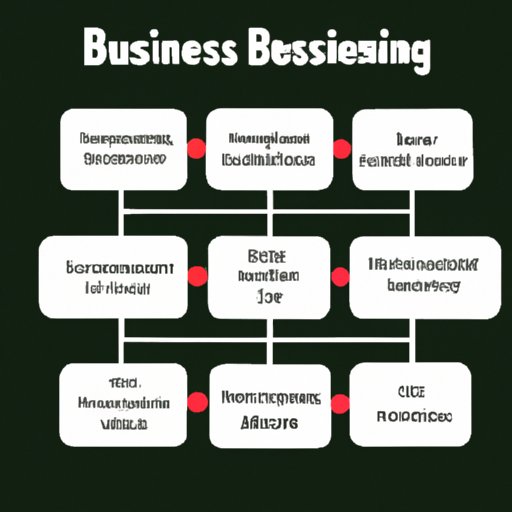Introduction
Starting your own business is an exciting prospect that can lead to financial freedom and personal satisfaction. One of the most common types of business structures is the sole proprietorship. A sole proprietorship is an unincorporated business owned by one individual and managed by that individual or a hired manager. It’s the simplest type of business structure and is relatively easy to set up and maintain. However, as with any other business structure, there are both benefits and risks associated with owning a sole proprietorship.
Steps for Starting a Sole Proprietorship
If you’re considering starting a sole proprietorship, there are several steps you’ll need to take in order to ensure your business succeeds. Here are the steps you should take when setting up your sole proprietorship:
1. Research Local Laws & Regulations
Before you can begin the process of registering your business, you must first understand the local laws and regulations that will be applicable to your business. Depending on your location, there may be zoning restrictions, taxes, and other regulations that you must comply with. Understanding these laws and regulations is essential to running a successful business.
2. Choose the Right Business Structure
Choosing the right business structure for your business is an important decision that will have long-term implications. In addition to a sole proprietorship, other business structures include partnerships, corporations, and limited liability companies (LLCs). Each structure has its own advantages and disadvantages, so it is important to consider all of your options before making a decision.
3. Create a Business Plan
Once you’ve chosen the right business structure, it’s time to create a business plan. A business plan is a document that outlines your goals, strategies, and financial projections. It is an essential tool for planning, organizing, and managing your business. Your business plan should include information about your target market, competitive analysis, pricing strategy, and operational plans.
4. Register Your Business
Once you’ve created a business plan, you’ll need to register your business with the appropriate government agency. This is typically done with the state or local government in which your business is located. The process for registering your business varies depending on the jurisdiction, so it’s important to research the specific requirements for your area.
5. Obtain Relevant Licenses and Permits
Depending on your industry, you may need to obtain certain licenses or permits in order to operate legally. For example, if you’re selling food or alcohol, you’ll need to obtain the necessary health and safety licenses. Make sure to research the specific licenses and permits required for your business before you start operating.
6. Open a Business Bank Account
Opening a business bank account is an important step in setting up your business. Having a separate bank account for your business allows you to easily track income and expenses, and make payments without mixing your personal finances with your business finances. Most banks offer business banking accounts with features tailored to the needs of small businesses.
7. Develop an Effective Marketing Strategy
Developing an effective marketing strategy is essential for the success of your business. Your marketing strategy should include tactics for reaching your target audience, such as advertising, social media, content marketing, and event marketing. You should also consider hiring a professional marketing consultant to help you create a comprehensive strategy.
Conclusion
Starting a sole proprietorship can be a great way to achieve financial freedom and pursue your entrepreneurial dreams. By researching local laws and regulations, choosing the right business structure, creating a business plan, registering your business, obtaining relevant licenses and permits, opening a business bank account, and developing an effective marketing strategy, you can set yourself up for success.
It’s important to remember that owning a sole proprietorship comes with both benefits and risks. While you have the potential to make a significant amount of money and enjoy considerable autonomy, you also assume unlimited liability for the debts and obligations of your business. Therefore, it’s essential to do your research and consult with legal and financial professionals to ensure you understand the full scope of what it means to own a sole proprietorship.
Finally, there are many resources available to help you get started. Local governments, small business organizations, and online communities can provide invaluable advice and support on the journey to becoming a successful entrepreneur.
(Note: Is this article not meeting your expectations? Do you have knowledge or insights to share? Unlock new opportunities and expand your reach by joining our authors team. Click Registration to join us and share your expertise with our readers.)
